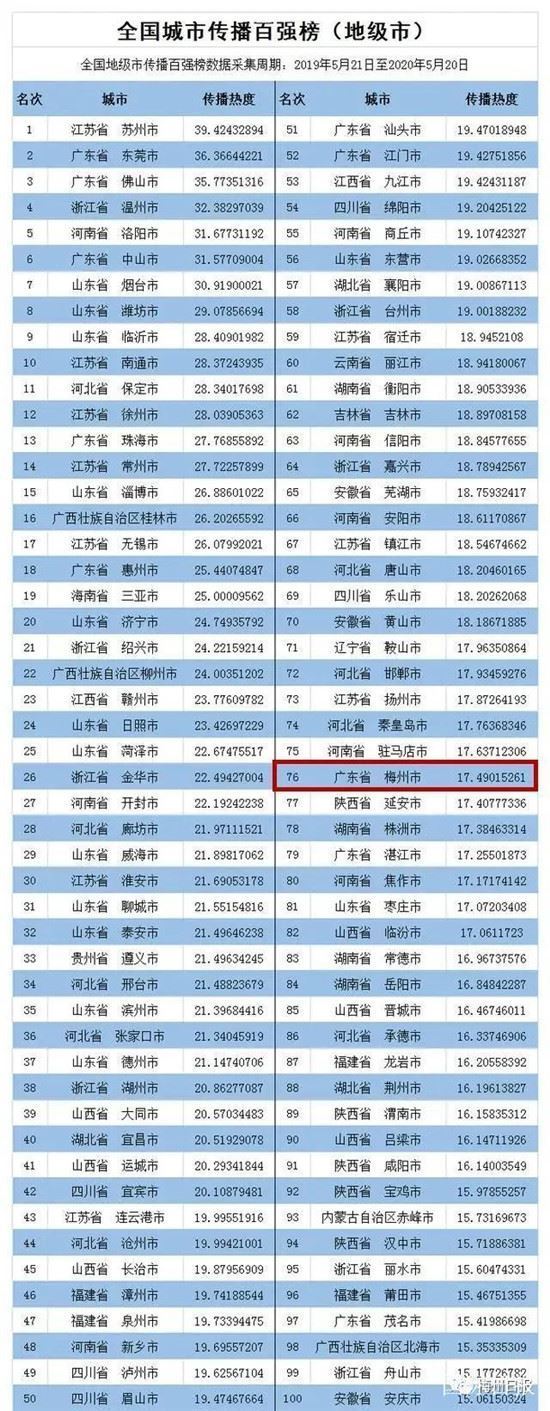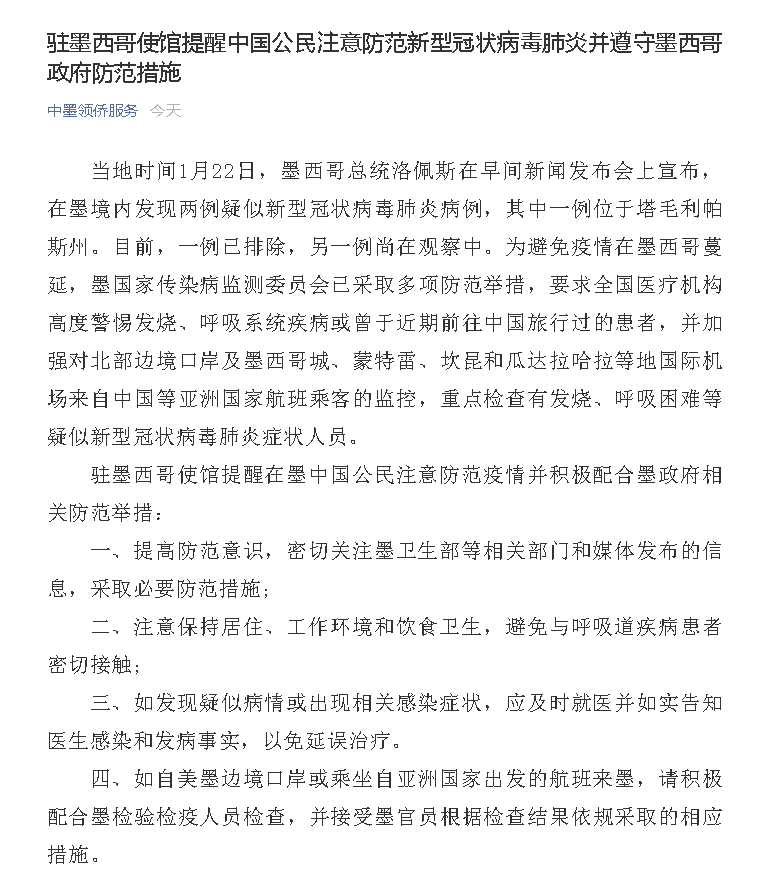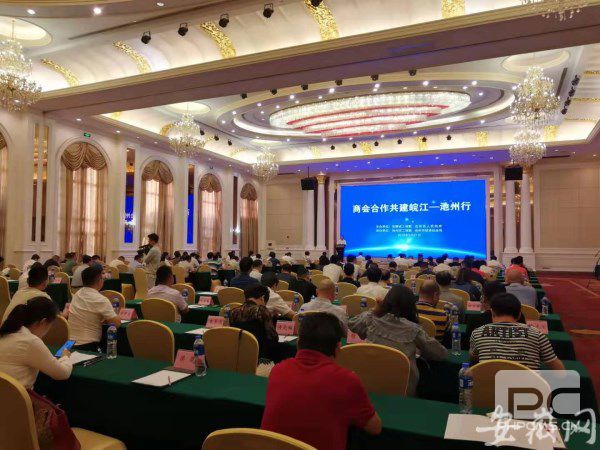法家鼻祖管子“依法治国”语录汉英双解
法家鼻祖管子“依法治国”语录汉英双解
管必红、【刘向】、【Allyn Rickett】
以法治国
【原文】 不淫意于法之外,不为惠于法之内也。动无非法者,所以禁过而外私也。威不两错,政不二门。以法治国则举错而已。 《明法》
【汉解】 不在法度外浪费心机,也不在法度内私行小惠。所谓任何行动都不离开法度,就正是为了禁止过错而排除行私的。君权不能由两家占有,政令不能由两家制定。以法治国不过是一切都按法度来处理而已。
【英译】 Having no licentious desires that transgressed the law, nor bestowing personal favors within the law. By seeing to it that actions were in violation of the law, they were able to prevent transgressions and exclude selfish behavior. Majesty cannot be wielded by two persons; government cannot have two gates. When a ruler uses laws to govern his country, he need only put them in place and that is all.
法者天下之仪也 所以决疑而明是非也
【原文】夫不法法则治。法者天下之仪也,所以决疑而明是非也,百姓所县命也。故明王慎之,不为亲戚故贵易其法,吏不敢以长官威严危其命,民不以珠玉重宝犯其禁。 《禁藏》
【汉解】不废法才能管好国家。法,是天下的仪表,是用来解除疑难而判明是非的,是与百姓生命攸关的。所以明君对于法非常慎重,绝不为亲故权贵而改变法律,他的官吏也就不敢利用长官权威破坏法令,百姓也就不敢利用珠宝贿赂触犯禁律。
【英译】 When the former kings made their tours, going out in the spring to check if there were any lack of basic necessities for agriculture was called a spring tour. Going out in the fall to provide aid wherever people were short of provisions was called an end-of-the-year excursion. Now, when the army marches[along with the ruler], taking grain and provisions from the people, it is called being destructive. When the ruler follows his pleasure and does not repent, it is called being reckless. The former kings engaged in the business of spring tours and end of the year excursions on behalf of others. They, did not engage in destructive or reckless practices for their personal pleasure
法令之不行 万民之不治 贫富之不齐也
【原文】夫民富则不可以禄使也,贫则不可以罚威也。法令之不行,万民之不治,贫富之不齐也。《国蓄》
【汉解】人太富了,利禄就驱使不动;太穷了,刑罚就威慑不住。法令的不能贯彻,万民的不能治理,是由于社会上贫富不均的缘故。
【英译】Now, if people are too rich, salaries cannot be used to employ them; If they are too poor, punishments cannot be used to intimidate them. When laws and orders are not executed and the multitude is not well governed, it is because great inequality exists between rich and poor.
法制不议 则民不相私
【原文】法制不议,则民不相私。刑杀毋赦,则民不偷于为善。爵禄毋假。则下不乱其上。三者藏于官则为法,施于国则成俗,其余不彊而治矣。《法禁》
【汉解】法制不容私议,人们就不敢相互营私;刑杀不容宽赦,人们就不敢忽视为善;授爵赐禄的大权不假送于人,臣下就不会作乱于人君。这三事掌握在官府,就是“法”;推行到全国民众,就成其为俗。其他事情不用费力就可以安定国家了。
【英译】If the legal system is not open to discussion, people will not unite to promote their self-interest. If there is no pardoning of punishments and executions, people will not take chances to do what they like. If the awarding of ranks and salaries is not delegated to others, subordinate officials will not rebel against their sovereign. When these three have been assimilated by officialdom, they will become the law. When they have been put into effect throughout the country, they will become a matter of accepted practice. Beyond this no effort will be required for good order to prevail.
法不法 则令不行
【原文】不法法,则事毋常;法不法,则令不行。令而不行,则令不法也;法而不行,则修令者不审也;审而不行,则赏罚轻也;重而不行,则赏罚不信也;信而不行,则不以身先之也。《法法》
【汉解】不以法推行法度,则国事没有常规;法度不用法的手段推行,则政令不能贯彻。君主发令而不能贯彻,是因为政令没有成为强制性的法律;成为强制性的法律而不能贯彻,是因为起草政令不慎重;慎重而不能贯彻,是因为赏罚太轻;赏罚重而不能贯彻,是因为赏罚还不信实;信实而不能贯彻,是因为君主不以身作则。
【英译】If the ruler does not conform to the law, government affairs will lack a constant standard. If he conforms to what is unlawful, his orders will not be carried out, it is because the orders do not conform to the law. If they conform to the law yet are not carried out, it is because those who issue the orders are not discerning in their judgment. If they are discerning yet the orders are not carried out, it is because the rewards are paltry and punishments light. If the rewards are generous and the punishments severe yet the orders are not carried out, it is because they are not reliable. If the rewards and punishments are reliable yet the orders are not carried out, it is because the ruler does not set an example by obeying them himself.
选贤论材 待之以法
【原文】是以为人君者,坐万物之原,而官诸生之职者也。选贤论材,而待之以法。举而得其人,坐而收其福,不可胜收也。。《君臣上》
【汉解】做君主的,是掌握万事的原则,而授予众人的职事的。选拨贤良,评选人材,并且要依照法度来对待使用他们。如果举用人材正确得当,就可以坐而治国,好处是不可尽收的。
【英译】The true prince sits at the source of the myriad of things and is the one who assigns tasks for all living beings. He selects the worthy, assesses the talented , and treats them according to the law. Having elevated and obtained the service of these men, he sits back and watches over his people, and his wealth is more than can be absorbed.
故刑罚不足以畏其意 杀戮不足以服其心
【原文】能佚乐之,则民为之忧劳。能富贵之,则民为之贫贱。能存安之,则民为之危坠。能生育之,则民为之灭绝。故刑罚不足以畏其意,杀戮不足以服其心。《牧民》
【汉解】因为我能使人民安乐,他们就可以为我承受忧劳;我能使人民富贵,他们就可以为我忍受贫贱;我能使人民安定,他们就可以为我承担危难;我能使人民生育繁息,他们也就不惜为我而牺牲了。单靠刑罚不足以使人民真正害伯,仅凭杀戮不足以使人民心悦诚服
【英译】If the people can provide them with leisure and freedom from care, the people will be willing to endure trouble and toil for him. If he can provide them with riches and honor, they will be willing to endure poverty and low position for him. If he can ensure their existence and provide them with security , they will be willing to endure danger and disaster for him. If he enable them to live and propagate, they will be willing to endure death and annihilation for him.
人故相憎也 人之心悍
【原文】人故相憎也,人之心悍。故为之法。法出于礼,礼出于治,治礼道也,万物待治礼而后定。《枢言》
【汉解】人们本来是相互憎恶的,人心凶悍,所以要颁布法律。法出于礼,礼出于理论。理论与礼都是道。万物的关系都是根据理论和礼的出现而后才确定下来的。
【英译】 Men in ancient times were hostile to each other, and their hearts were cruel. Therefore laws were made for them. Laws emanated from rules of propriety, and these in turn from the requirements for good order. Good order and customary rules of behavior constitute the moral way. All beginnings await the security that comes when good order and the rules of propriety prevail.
圣君任法而不任智
【原文】 圣君任法而不任智,任数而不任说,任公而不任私,任大道而不任小物,然后身佚而天下治。 《任法》
【汉解】 圣明君主依靠法度而不依靠智谋,依靠政策而不依靠议论,依靠公而不依靠私,依靠大道而不依靠小事,结果是自身安闲而天下太平。【英译】The sage prince relies on established laws, not on expertise; on statistical methods, not on empty talk; on impartiality, not on self- serving arguments; on the great principles of ruleship, not on trivial actions. Afterward, he may take his ease, yet the empire will be well governed.
礼义廉耻 治国根本
【原文】 凡牧民者,欲民之修小礼、行小义、饰小廉、谨小耻、禁微邪、此厉民之道也。民之修小礼、行小义、饰小廉、谨小耻、禁微邪、治之本也。 《权修》
【汉解】 凡治理人民,要求人民谨小礼、行小义、修小廉、饬小耻、禁止小的坏事,这都是训练人民的办法。而人民能够作到谨小礼、行小义、修小廉、饬小耻并禁止小的坏事,又正是治国的根本。
【英译】Since those who shepherd the people desire them even in minor matters to be meticulous in observing propriety, practicing righteousness, cultivating integrity, and displaying a sense of shame, they must prohibit even the slightest beginning of evil. Such is the way to discipline the people. When the people, even in minor matters, are meticulous in observing propriety, practicing righteousness, cultivating integrity, and displaying a sense of shame, and even the slightest beginning of evil are prohibited, such is the basis of good order.
衣食足,则知荣辱
【原文】凡有地牧民者,务在四时,守在仓廪。国多财,则远者来,地辟举,则民留处;仓廪实,则知礼节;衣食足,则知荣辱;上服度,则六亲固。四维张,则君令行。《牧民》
【汉解】凡是一个国家的君主,必须致力于四时农事,确保粮食贮备。国家财力充足,远方的人们就能自动迁来,荒地开发得好,本国的人民就能安心留住。粮食富裕,人们就知道礼节;衣食丰足,人们就懂得荣辱。君主的服用合乎法度,六亲就可以相安无事;四维发扬,君令就可以贯彻推行。
【英译】All those who posses territory and shepherd people must pay heed to the four seasons and watch over granaries. If the state has an abundance of wealth, people will come from afar. If the land has been opened for cultivation, They will settle down. When the granaries are full, they will know propriety and moderation. When their clothing and food is adequate, They will know the distinction between honor and shame. If those on high exercises proper measure in dress and expenditure, the six relationships will be secure. If the four cardinal virtues prevail, the prince’s orders will be carried out.
厚爱利 足以亲 明智礼 足以教
【原文】 厚爱利,足以亲之。明智礼,足以教之。上身服以先之。审度量以闲之。乡置师以说道之,然后申之以宪令,劝之以庆赏,振之以刑罚,故百姓皆说为善,则暴乱之行无由至矣。 《权修》
【汉解】 君主能够付出厚爱和厚利,就可以亲近人民,申明知识相礼节,就可以教育人民。要以身作则来引导人民,审定规章制度来防范人民,设置乡的官吏来指导人民。然后再用法令加以约束,用奖赏加以鼓励,用刑罚加以威慑。这样,百姓就都愿意做好事,暴乱的行为便不会发生了。
【英译】Being generous with love and benefits is sufficient to win the allegiance of the people. Manifesting wisdom and propriety is sufficient to instruct them. However, the sovereign must himself adhere to the law in order to serve as an example for them and see that there is proper measure in exactions and expenditures in order to guard against excesses. Place governors in the local districts to exhort and guide the people. Thereafter, keep them informed with laws and orders, encourage them with rewards, and overawe them with punishments. Then, since the hundred surnames will all be happy in doing good, violent and disorderly conduct will have no cause to arise.
积多者其食多 积寡者其食寡 无积者不食
【原文】 凡牧民者。以其所积者食之。不可不审也。其积多者其食多,其积寡者其食寡,无积者不食。或有积而不食者,则民离上;有积多而食寡者,则民不力;有积寡而食多者,则民多轴;有无积而徒食者,则民偷幸; 《权修》
【汉解】凡是治理人民,对于按劳绩给予禄赏的问题,不可不审慎从事。劳绩多的禄赏多,劳绩少的禄赏少,没有劳绩的就不给予禄赏。如果有劳绩而没有禄赏,人们就离心离德;劳绩多而禄赏少,人们就不努力工作;劳绩少而禄赏多,人们就弄虚作假;无劳绩而空得禄赏,人们就贪图侥幸。
【英译】Those who would shepherd the people must pay careful attention to see that stipends accord with achievements. Those whose achievements are great should be given much. Those whose achievements are few should be given less. Those who have no achievement should be given nothing. Should it happen that those who have achievements receive nothing , the people will turn away from the sovereign. Should those whose achievements are great receive less, the people will not exert themselves. Should those whose achievements are few receive more, the people will resort to deceitfulness. Should those who have no achievements receive stipends for nothing, the people will merely trust to luck.
察能授官 班禄赐予 使民之机
【原文】 故离上不力,多轴偷幸,举事不成,应敌不用。故曰:察能授官,班禄赐予,使民之机也。 《权修》
【汉解】 凡是离心离德、工作不力、弄虚作假、贪图侥幸的,举办大事不会成功,对敌作战也不会尽力。所以说,根据人的能力授予官职,按照劳绩差别赐予禄赏,这是用人的关键.
【英译】Now if the people turn away from the sovereign, do not exert themselves, resort to deceitfulness, or merely trust to luck, they will neither complete their sovereign’s undertakings nor be of any use in opposing the enemy. Therefore it is said: “Investigate ability when bestowing offices; graduate the salaries when making awards. Such is the crucial factor when employing the people.
此三本者 治乱之原
【原文】君之所审者三:一曰德不当其位;二曰功不当其禄;三曰能不当其官;此三本者,治乱之原也。《立政》
【汉解】君主需要审查的问题有三个:一是大臣的品德与地位不相称,二是大臣的功劳与俸禄不相称,三是大臣的能力与官职不相称。这三个根本问题是国家治乱的根源。
【英译】The prince should be concerned about three things: The first is that a man’s virtue is not equal to his position. The second is that his achievement is not equal to his salary. The third is that his ability is not equal to his office. These three fundamental areas of concern are a source of order or disorder.
民之所利立之 所害除之 则民人从
【原文】至善之为兵也,非地是求也,罚人是君也。立义而加之以胜,至威而实之以德。守之而后修,胜心焚海内。民之所利立之,所害除之,则民人从。《幼官》
【汉解】最高水平的用兵,不是为了占领别国的土地,也不是为了统治别国的人民。实行正义而以战胜为保证,给予威慑而以德政为内容;保持战果并扩展胜利果实,立意在控制天下。兴人民所利,除人民所害,则各国百姓服从。
【英译】The best way to employ arms is not by demanding the enemy’s territory but by applying punishments to their prince alone. Institute righteousness and apply it in your victories. Maximize your prestige and make it real by exercising benevolence. Observe these two and afterward you will conquer the minds of the enemy and encompass all within the seas.
得人之道 莫如利之
【原文】得人之道,莫如利之。利之之道,莫如教之以政,故善为政者,田畴垦而国邑实,朝廷闲而官府治,公法行而私曲止,仓廪实而囹圄空,贤人进而奸民退,《五辅》
【汉解】得人的方法,莫如给人以利益;而给人以利益的方法,莫如用实际政绩来证明。所以,善于为政的,总是田地开垦而城邑殷实,朝廷安闲而官府清治,公法通行而邪道废止,仓库充实而监狱空虚,贤人得用而奸臣罢退。
【英译】The ways of winning the hearts of men, nothing is as good as benefiting them. Among the ways of benefiting them, nothing is as good as teaching them. Therefore, the sovereign who is skilled in conducting his government has well-developed fields and his capital city and towns are well populated. His court is calm and his offices well run. Public laws are carried out while individual crookedness is prevented. The granaries are full and the jails empty. Worthy men come forward, while wicked people retreat.
凡国之亡也 以其长者也
【原文】凡国之亡也,以其长者也。人之自失也,以其所长者也,故善游者死于梁池,善射者死于中野。命属于食,治属于事。…众胜寡,疾胜徐,勇胜怯,智胜愚,善胜恶,有义胜无义,有天道胜无天道,凡此七胜者贵众,用之终身者众矣《枢言》
【汉解】凡国家的败亡,找原因往往在它的长处;人的自我失误,也往往因其所长。所以,善于游泳者死于梁地,善于射猎者常死在荒野之中。生命从属于粮食,言辞从属于实事。… 众胜寡,快胜慢,勇胜怯,智胜愚,善胜恶,有义胜无义,有天道胜无天道。凡此七个胜利条件贵在有其多数。而终身运用就将具备其多数了。
【英译】The demise of states and the defeat of individuals stem from their strengths. Therefore, those who are skilled in swimming die in dammed up ponds. Those who are killed in shooting die in fields. Life depends on having food to eat. Good government depends on managing affairs. The many will be victorious over the few, the speedy over the slow, the brave over the cowardly, the wise over the stupid, the good over the bad, those who practice righteousness over those who do not, and those who follow the way of Heaven over those who do not. When all seven of these victories are appreciated and brought together, a great many people will be able to live out their full lives.
远者以礼 近者以体
【原文】先王取天下,远者以礼,近者以体,体礼者,所以取天下,远近者,所以殊天下之际。《枢言》
【汉解】先王谋取天下,对远的国家用“礼”,对近的国家用“亲”。所谓亲和礼,是用来谋取天下的手段;所谓远和近,是就区分天下各国边际而言的。
【英译】The former kings gained control over distant peoples of the realm by using the rules of propriety. For those close at hand, they relied on personal contact. Personal contact and the rules of propriety were the means by which they gained control over the realm. “Far” and “near” were the means by which they differentiated forms of intercourse.
令已布而罚不及 则是教民不听
【原文】 令已布而罚不及,则是教民不听。民不听,则强者立;强者立,则主位危矣。故曰:宪律制度必法道,号令必著明,赏罚必信密,此正民之经也。《法法》
【汉解】法令已经公布,而不能依法行罚,这就是叫人民不服从法令。人民不服从法令,强人就要兴起;强人兴起,君主地位就危险了。所以说:法律制度一定要合于治国之道,号令一定要严明,赏罚一定要信实坚决,这都是规正人民的准则。
【英译】If the orders have already been issued but punishments are not meted out to those who disregard them, the people are taught to be disobedient. If the people are disobedient, the strong establish themselves in power. If the strong establish themselves, the position of the ruler will be endangered. Therefore, it is said:”Legal statutes, regulations, and procedures must be patterned on the moral way. The orders must be publicized and made clear, and the rewards and punishments must be made reliable and absolute.” These are the standards for bringing order to people.
势非所以予人也
【原文】令重于宝,社稷先于亲戚,法重于民,威权贵于爵禄。故不为重宝轻号令,不为亲戚后社稷,不为爱民枉法律,不为爵禄分威权。故曰:势非所以予人也。《法法》
【汉解】 政令重于宝物,政权先于至亲,法度重于人民,威权重于爵禄。所以,不可为重宝而看轻政令,不可为至亲而把国家政权放在后面,不能为爱民而歪曲法律,不能为爵禄而分让权威。所以说:权势是不能给予他人的。
【英译】Orders are more precious than jewels. The altars to Land and Grain take precedence over family relations. The laws are more important than the people. Prestige and power are more to be valued than ranks and salaries. Thus, do not disregard orders because of precious jewels. Do not consider your altars to Land and Grain secondary because of family relations. Do not twist laws and statutes because of love for the people. Do not share your prestige and power because of ranks and salaries. Therefore it is said:”Your position of authority is not something to be granted to others.
予之为取者 政之宝也
【原文】故刑罚繁而意不恐,则令不行矣。杀戮众而心不服,则上位危矣。故从其四欲,则远者自亲;行其四恶,则近者叛之,故知“予之为取者,政之宝也”。《牧民》
【汉解】刑罚繁重而人心不惧,法令就无法推行了;杀戮多行而人心不服,为君者的地位就危险了。因此,满足上述四种人民的愿望,疏远的自会亲近;强行上述四种人民厌恶的事情,亲近的也会叛离。由此可知,“予之于民就是取之于民” 这个原则,是治国的法宝。
【英译】Therefore punishment alone is not enough to terrify the minds of the people, nor is killing sufficient to make their hearts submissive. Thus, if punishments are numerous yet the minds of the people are not terrified, orders will not be carried out. If killing abounds, yet the hearts of the people are not submissive, the position the sovereign will be endangered. Therefore if the prince complies with their four desires, even those in distant places will of themselves rally around him. But if he imposes on them the four things they hate, then even those who are near at hand will turn against him. Thus knowing that “to give is to receive” is the most precious thing in government.
无私可做官
【原文】故知时者,可立以为长。无私者,可置以为政。审于时而察于用,而能备官者,可奉以为君也。缓者后于事。吝于财者失所亲,信小人者失士。《牧民》
【汉解】所以,通晓天时的,可以任用为官长;没有私心的,可以安排作官吏;通晓天时,善于用财,而又能任用官吏的,就可以奉为君主了。处事迟钝的人,总是落后于形势;吝啬财物的人,总是无人亲近;偏信小人的人,总是失掉贤能的人材。
【英译】Therefore he who understands the times may be appointed head of an office. He who shows no partiality may be placed in charge of administration. He who examines the times, finds out what is applicable to them, and so is able fill his offices with men of ability, may be elevated as a prince. He who procrastinates will be too late in his undertakings. He who is stingy with wealth will lose those close to him. He who trusts petty men will lose gentlemen of worth.
凡治国之道 必先富民
【原文】凡治国之道,必先富民。民富则易治也,民贫则难治也。奚以知其然也?民富则安乡重家,安乡重家则敬上畏罪,敬上畏罪则易治也。民贫则危乡轻家,危乡轻家则敢凌上犯禁,凌上犯禁则难治也。《治国》
【汉解】大凡治国的道理,一定要先使人民富裕,人民富裕就容易治理,人民贫穷就难以治理。何以知其然?人民富裕就安于乡居而爱惜家园,安乡爱家就恭敬君上而畏惧刑罪,敬上畏罪就容易治理了。人民贫穷就不安于乡居而轻视家园,不安于乡居而轻家就敢于对抗君上而违犯禁令,抗上犯禁就难以治理了。
【英译】 It is ever so that the way to maintain good order in a state is to be certain, first of all, to make its people prosperous. When the people are prosperous, they are easy to keep in order. When the people are poor, they are difficult to keep in order. How do we know this? If people are prosperous, they will feel content in their local districts and treat their homes as very important. If so, they will respect their sovereign and be leery of committing crimes, then, they will be easy to keep in order. If the people are poor, they will feel threatened in their districts and treat their homes lightly, they will dare to denigrate their sovereign and violate his prohibitions. If this occurs, they will be difficult to keep in order.
凡牧民者 必知其疾
【原文】凡牧民者,必知其疾,而忧之以德,勿惧以罪,勿止以力。慎此四者,足以治民也。《小问》
【汉解】凡治理人民,一必须知其疾苦,二是要厚施德惠,三是不用刑罚恐吓,四是不用强力禁制。注意这四点,就可以治理好了。
【英译】 Whoever shepherds the people, must always be aware of their suffering, express his concern by being benevolent, and avoid terrifying them with punishments or restraining them with excessive force. If you pay attention to these four, it will be sufficient to maintain good order among the people.
誉不虚出 患不独生 福不择家 祸不索人
【原文】誉不虚出,而患不独生,福不择家,祸不索人,此之谓也。能以所闻瞻察,则事必明矣。《禁藏》
【汉解】荣誉不凭空出现,忧患不无故发生,幸福不挑选人家,灾祸不自动找到人的头上,就是这个意思。能用自己的亲身见闻探察反省,事情就清楚了。
【英译】Fame does not spring from nothing, nor does calamity have a single cause; good fortune does not seek out individual families, nor is disaster tied to individual men—the same idea is being expressed. Matters will certainly become clear if one is able to use what one has personally heard and seen to reflect on this.
使法择人,不自举也
【原文】使法择人,不自举也;使法量功,不自度也。故能匿而不可蔽,败而不可饰也;誉者不能进,而诽者不能退也。然则君臣之间明别,明别则易治也,主虽不身下为,而守法为之可也。 《明法》
【汉解】用法度录取人材,自己并不推荐;用法度计量功劳,自己并不裁定。所以贤能不可能被掩蔽,败类也不可能伪装;夸誉者不能进用人,诽谤者也不可能罢免人。这样,君臣的界限就分明了,分明就容易治理,因为君主虽不自身下去办事,依靠法度去办就行了
【英译】Selecting men on the basis of law and did not depend on their own judgments when elevating them. Assessing merit on the basis of law and did not depend on their own judgments to make decisions. Therefore, the able could not be concealed and the corrupt could not disguise their actions. Those who would praise the unworthy were not able to advance; those who would slander the worthy were not able to retreat. Such being the case, ruler and minister were clearly separated, and since this separation was clear, good order was easily maintained. Even though the ruler did not himself conduct activities below, by upholding the law, things were properly done.
为人臣者 比官中之事 而不言其外
【原文】为人君者,修官上之道,而不言其中;为人臣者,比官中之事,而不言其外。君道不明,则受令者疑;权度不一,则修义者惑。《君臣上》
【汉解】做人君的,要讲求统属众官的方法,而不要干预众官职责以内的事务;做人臣的,要处理职责以内的事,而不要干预到职责以外去。君道不明,奉令干事的人就发生疑虑;权限不划一,奉公守法的人就感到迷惑。
【英译】The true prince cultivates a way of remaining above the various offices and not discussing their internal affairs. True ministers coordinate the internal affairs of the various offices but do not discuss matters lying outside them. If the way of the prince is not clear, those who receive his orders will be in doubt. If political power and procedure are not unified, those who practice righteousness will be led away.
要审时度势
【原文】上度之天祥,下度之地宜,中度之人顺,….审时以举事,以事动民,以民动国,以国动天下。故民必知权然后举错得。故曰:权不可不度也。《五辅》
【汉解】上考度天时,下考度地利,中考度人和。所以说:要审度时机来举办大事,用举事发动人民,用人民发动国力,用一国发动天下。所以,人民必须懂得权衡轻重,然后才举措得当。因此说:权衡轻重这一点,不可不善加考度。
【英译】Above there is the auspiciousness of Heaven, below the suitable of Earth, and in the middle the submissiveness of man…..Pay attention to the seasons of Heaven to initiate undertakings. Use undertakings to move the people, the people to move the state, and the state to move the realm. Now, once the people are certain to know the meaning of political power, what you initiate will be accomplished. Therefore, it is said:” Political power must be based on these considerations.”
得人之道,莫如利之
,【原文】得人之道,莫如利之。利之之道,莫如教之以政,故善为政者,田畴垦而国邑实,朝廷闲而官府治,公法行而私曲止,仓廪实而囹圄空,贤人进而奸民退,《五辅》
【汉解】得人的方法,莫如给人以利益;而给人以利益的方法,莫如用实际政绩来证明。所以,善于为政的,总是田地开垦而城邑殷实,朝廷安闲而官府清治,公法通行而邪道废止,仓库充实而监狱空虚,贤人得用而奸臣罢退。
【英译】The ways of winning the hearts of men, nothing is as good as benefiting them. Among the ways of benefiting them, nothing is as good as teaching them. Therefore, the sovereign who is skilled in conducting his government has well-developed fields and his capital city and towns are well populated. His court is calm and his offices well run. Public laws are carried out while individual crookedness is prevented. The granaries are full and the jails empty. Worthy men come forward while wicked people retreat.
版权声明:本文仅代表作者个人观点,与美国华商网无关。其原创性以及文中陈述文字和内容未经本站证实,对本文以及其中全部或者部分内容、文字的真实性、完整性、及时性本站不作任何保证或承诺,请读者仅作参考,并请自行核实相关内容。如若侵犯版权,请联系美国华商网编辑删除,争议稿件请发邮件至594958710@qq.com。
-
国务院总理李克强会见中外记者(直播回放)
李克强:各级政府都要以人民利益至上,以万家疾苦为重,每出一策都要考虑是否有利于千家万户、有利于民生。今年我们在应对疫情冲击 [详细] -
全国政协十三届三次会议闭幕会
汪洋:各位委员:中国人民政治协商会议第十三届全国委员会第三次会议,应出席委员2151人,今天实到2043人,符合规定人数。现在开会 [详细] -
坚定信心,打赢疫情防控阻击战
近日,习近平总书记在考察北京地坛医院和朝阳区疾控中心时表示,信心百倍打好阻击战、总体战,打好这一场人民战争,我们一定要树立 [详细] -
代购医用口罩捐赠家乡工作组通告
据安徽卫视新闻报道大年三十将首批万余只一次性医用防护口罩捐送到武汉市东湖区人民医院;第二批1000只捐送给安[详细] -
众志成城抗冠毒 华商精英在行动
二0二0 年初,正当中华儿女辞旧迎新,欢度鼠年春节大迁徙的时候,一场突如其来的新型冠状病毒开始在有着1200百万人口的城市武汉肆虐。为了 [详细]







